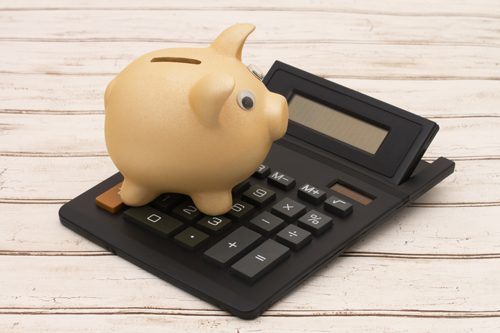Did you ever plan a budget? If you did, did you ever have trouble sticking to it?
Many people make a budget plan and are able to follow their plan exactly. Others find it difficult to follow their budget plan, and some simply give up on their budget plan completely. Knowing how to plan a budget and stick to it is a life skill that is important to everyone’s financial well being. This is especially true of individuals who are recovering from an alcohol or drug addiction. To those individuals, making and following a budget is an essential life skill.
Why is Having a Budget Important?
If you or someone you love is suffering from an addiction, you may be wondering why having a budget is so important. According to James R. Finley in his book, Integrating the 12 Steps into Addiction Therapy: A Resource Collection and Guide for Promoting Recovery, a budget plan is essential to “avoid impulsive spending and use money wisely.” Proper money management is an important part of a successful recovery.
While actively using, many addicted people will spend whatever money is available in search of the next high. They may use up their savings, borrow money from family and friends, or sell their possessions. Simply put, many of these addicts will do whatever is necessary to satisfy their addiction.
Although some people with an addiction problem are not in a dangerous financial position, these individuals learn to associate spending money with reaching their next high. In both cases, money becomes a powerful trigger for their addiction and is a threat to their sobriety.
Money Can Be a Relapse Trigger for Addiction
In an article for Psych Central titled, Money: The Lesser Known Relapse Trigger, Dr. David Sachs writes of the need to be aware that money can be a relapse trigger. He reminds us that an addict is looking for instant gratification and that the mindset of an addicted person is “I want what I want when I want it.”
One life skill that some in recovery can use to overcome the mindset of instant gratification is creating and following a budget. By setting up a detailed budget and having a way to monitor their spending, a person recovering from an addiction will feel that they are taking back control over the financial aspect of their life and, as a result, experience less stress.
The Benefits of Budgeting
When money is managed poorly, the usual result is debt. Being in debt usually leads to stress. In some cases, stress can lead to relapse or to the substitution of another addiction and the reckless use of money. Putting a budget in place and following it allows a person to feel less anxious and worried. By being less stressed, a person in recovery can focus more on their recovery and lifelong sobriety.
Creating a Budget
Simply put, a budget is a record of the money you have coming in and the money you need for expenses.
Create a budget by following these steps:
- Write down the amount of money you make each month.
- Write down how much money you spend each month on your regular bills. These items include things such as your rent or mortgage payment, utility bills, food and household items, credit card payments, car payments, etc.
- Determine how much money you spend on extras. These items include things such as clothing, entertainment, and luxury items.
Once you have determined if your bills are close to the total that you make each month, you may need to make adjustments to your spending. Planning a budget and sticking to it may require making some very difficult decisions.
It is also important to set goals into your budget, such as putting a set amount of money into a savings account each month. Part of the savings account should be set aside for emergency situations. You could also set aside part of it to be used to plan for something expensive such as a new car, a downpayment on a house, a vacation, or a luxury item.
Choosing a Recovery Center that Includes Essential Life Skills
Learning important life skills, such as how to create and follow a budget, is essential for a successful recovery from addiction. At Canyon Vista Recovery Center, learning how to budget is one of the many necessary life skills residents learn as part of their recovery plan. Additional life skills include setting goals, learning how to cope with daily pressures, shopping, and cooking. Learning these skills instills feelings of self-esteem and self-confidence that allows a sense of independence and well-being to grow.
In addition to necessary life skills, Canyon Vista’s treatment program includes a full continuum of care that includes a combination of traditional and holistic therapies, family healing work, physical wellness, and extended care treatment.










